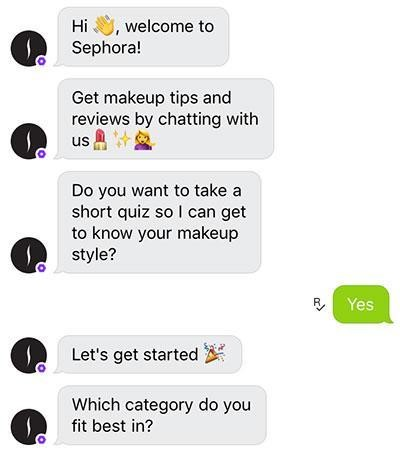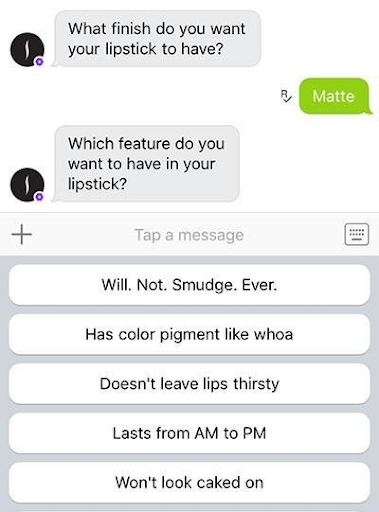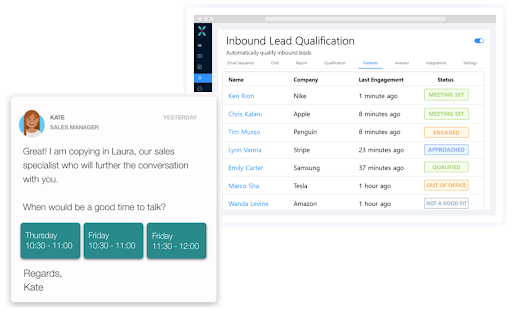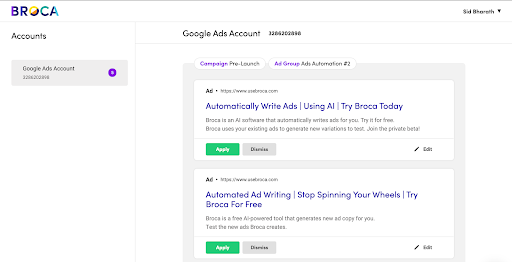30-second summary:
- AI has entered mainstream use in a variety of industries, and marketing is no different
- There are plenty of ways marketers can start leveraging AI for stronger results
- In this post, we take a look at four simple yet effective ways you can get started using AI to supercharge your marketing efforts and also improve customer experience
Think about how artificial intelligence (AI) is already contributing to your daily life — those smart replies in Gmail, movie recommendations on Netflix, music recommendations on Spotify, your intelligent voice assistant, and so on. AI is becoming an increasingly integral part of many industries and has a vast variety of use cases, especially in marketing. Over the years, big and small businesses have started using AI on some level to improve their products, website, and customer experience. In fact, according to Adobe, top-performing companies are more than twice as likely as their peers to be using AI for marketing (28% vs. 12%). So, AI is definitely more than a marketing buzzword, and it’s a bandwagon you should surely jump on.
While there are several more use cases of AI in marketing, here’s how you can start using AI for stronger results right away.
Enhance customer service with chatbots
Chatbots are not novel. You find them on many business websites, and the most effective ones are powered by AI.
Most customers today don’t have the patience to wait for assistance on the phone or over email. An AI-powered chatbot is an excellent customer service tool that enables customer self-service by providing instant answers to your customers’ commonly asked questions, so they don’t have to wait for a response over email/call, fill out a form, or submit support tickets.
Chatbots are available 24/7 and immune to frustration that can be caused by disgruntled customers. They minimize delays and blunders in customer service, and can also guide visitors to various parts of your website, allowing you to automate tedious aspects of customer service and focus efforts on tasks that move prospects further down the funnel.
That being said, intelligent chatbots aren’t just limited to customer service interactions and can be proactive in providing personalized marketing. For instance, Sephora’s Kik bot proactively opens with a quick quiz to learn about the prospect’s makeup preferences.

For people interested in learning more about a specific product, Kik serves a dialogue box with multiple whacky options.

As Sephora’s example demonstrates, AI-powered chatbots can help in top-of-the-funnel (TOFU) marketing. Looking into the B2B realm, AI bots are driving deeper into the funnel by helping lead conversion as well. Exceed.ai developed an AI sales assistant that independently engages prospects in two-way conversations via email, chat, and SMS to qualify them for a sales call with a human sales rep.

Companies spend a fortune on lead generation and more often than not these leads get buried in the CRM since SDRs and sales reps simply don’t have the bandwidth to follow up with them. An AI assistant that does all the nurture and lead qualifications for you can produce incredible value for companies that deal with leads in the hundreds and thousands.
Improve site search
Intuitive navigation is imperative for any modern business website and a functioning search bar plays a big role in ensuring that. Many visitors have a specific intent when they land on your website, and they would use the site search to try and quickly navigate to that particular piece of content or product.
A successful search experience translates to a better customer experience, creating a good brand impression in the minds of those visitors.
Traditional search, aka lexical search, does not go beyond literal matches of the query terms (or its variants) and does not understand the intent behind the query. Visitors, being human, often make typos or don’t know the exact words for what they want, which means they won’t get relevant results with a lexical search engine.
With AI-powered semantic search, your search engine can determine the intent and contextual meaning behind the search query, improving the accuracy of the results delivered. And if, for example, the products are not available or are out of stock, the engine can recommend highly relevant available products or content to retain those visitors and turn them into leads.
Optimize PPC ad campaigns
Marketers often have difficulty determining where and when to place ads and can struggle with figuring out the type of content and keywords that work best for the objectives of the campaign.
AI helps in audience and competitor research, discovering keyword opportunities, crafting optimized headlines, bidding smartly, and best of all — AI can even write your ad copy for you.
For example, Broca is an AI-powered platform that helps marketers generate ad copy. It constantly analyzes your ads and generates new ad variations so you don’t have to manually write ad copy.

Imagine the amount of time and effort you’ll save if you don’t have to craft keyword-optimized ad copies yourself.
Personalize the on-site experience
31% of consumers want their shopping experience to be more personalized than it currently is. AI allows for predictive personalization wherein you can automatically deliver dynamic on-site experiences and product recommendations that are most likely to appeal to individual cohorts.
Consider Amazon. Its AI-powered product recommendation engine uses data from purchase and browsing history, and items that are related and regularly bought together to create a personalized list of products that consumers are way more likely to be interested in. Amazon’s recommendation engine is responsible for 35% of the company’s revenue.
On-site personalization extends to content, too. With an AI recommendation tool, you can display different content to different visitors, based on their personal preferences and behaviors. This will improve their on-site experience and thus boost engagement.
Final thoughts
Simply put, with each passing day you put off using AI-powered solutions in your marketing efforts, you’re falling behind your competitors. It’s about time you start embracing AI-powered marketing tools.
From rendering near-instant customer service and personalized recommendations to improving site search and optimizing your Google Ads, there’s a lot you can do with AI to boost customer experience and conversions.
Hazel Raoult is a freelance marketing writer and works with PRmention.
The post How marketers can start using AI for stronger results appeared first on Search Engine Watch.
This marketing news is not the copyright of Scott.Services – please click here to see the original source of this article. Author: Hazel Raoult
For more SEO, PPC, internet marketing news please check out https://news.scott.services
Why not check out our SEO, PPC marketing services at https://www.scott.services
We’re also on:
https://www.facebook.com/scottdotservices/
https://twitter.com/scottdsmith
https://plus.google.com/112865305341039147737
The post How marketers can start using AI for stronger results appeared first on Scott.Services Online Marketing News.
source https://news.scott.services/how-marketers-can-start-using-ai-for-stronger-results/
No comments:
Post a Comment